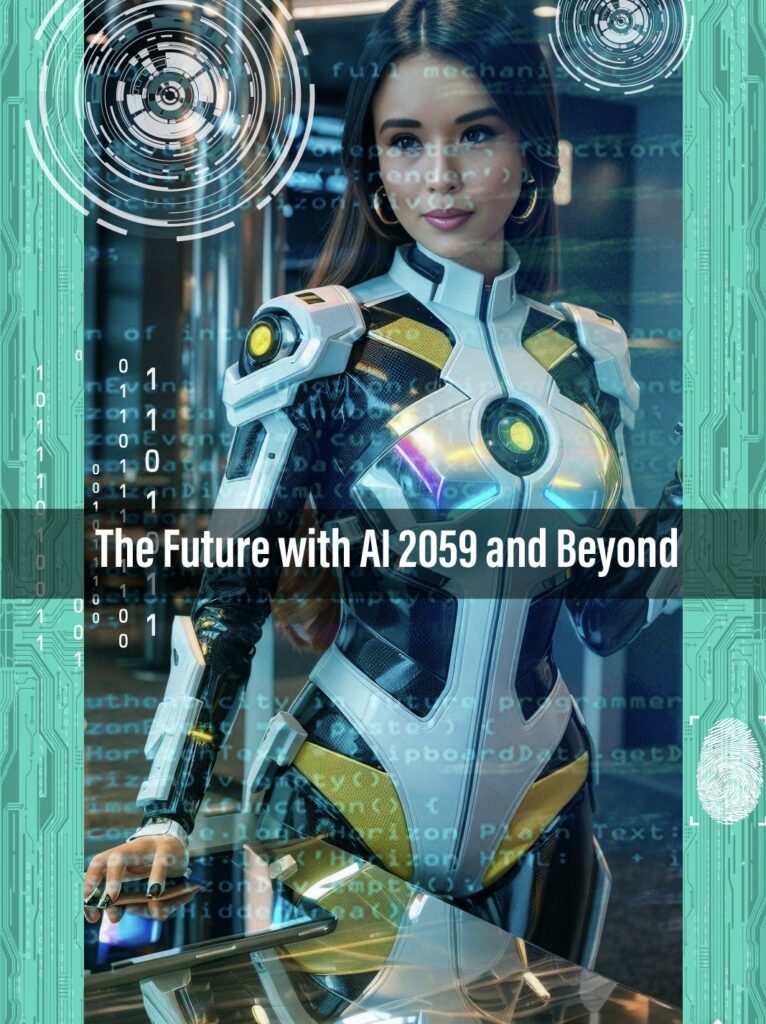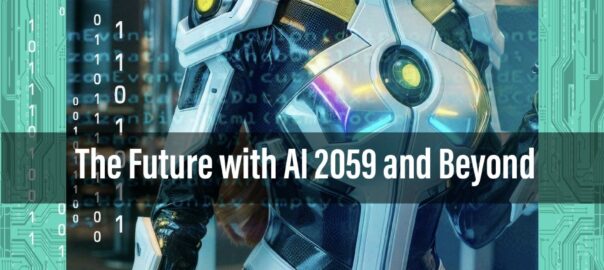
Envision a future where machines match human brilliance by 2059, as suggested by a 2022 survey. This prompts contemplation on the impending reality of highly intelligent machines and the implications for AI acceleration.
Despite concerns about machines overpowering humanity, futurist Ray Kurzweil envisions harmonious collaboration. The need for robust ethical frameworks and regulatory safeguards becomes crucial in exploring this coexistence.
The question of machines attaining self-awareness remains complex. AI’s decision-making capabilities progress, driven by recent developments in neural networks and deep learning.
As AI evolves, the demand for ethical safeguards grows. The potential for AI assuming human tasks requires a framework for responsibility, accountability, and addressing unintended consequences. Recent progress in explainable AI and ethical AI frameworks aims for transparency and accountability.
Shifting the narrative to optimism envisions AI enhancing human capabilities, with breakthroughs in natural language processing and reinforcement learning in various applications.
Advancements in quantum computing hold promise, potentially accelerating AI capabilities. This synergy between quantum computing and AI could be a game-changer, yet questions about the future of humanity in an AI-dominated world persist.
In AI’s future, integrating consciousness adds complexity. Kurzweil’s vision of transferring human consciousness challenges us to consider identity, individuality, and ethical implications.
Entropy reduction in Kurzweil’s exploration paints a refined future. Quantum machine learning leverages quantum mechanics, pushing AI boundaries.
Ethical considerations, central to AI discourse, lead to global efforts in research and policy formulation. Institutions collaborate on ethical guidelines prioritizing fairness, transparency, and accountability.
The societal impact of AI in 2045 becomes apparent, emphasizing AI education. Initiatives empower individuals to navigate AI implications actively.
At the crossroads of consciousness, ethics, and AI, humanity faces choices shaping coexistence. The narrative urges a blend of curiosity, responsibility, and core value preservation.
The ethical odyssey of AI prompts reevaluation. Discussions on governance and international collaborations address global implications.
Unraveling identity threads amid transferring consciousness prompts existential exploration. Brain-computer interfaces contribute to the dialogue on memories and experiences, demanding technical and moral engagement.
Collaboration envisions interdisciplinary research across fields, from healthcare to industry. The dance of autonomy and accountability requires vigilance, adaptability, and refined ethical frameworks.
The ongoing conversation becomes a dynamic forum for collective wisdom, with public engagement and inclusive dialogues. In AI’s odyssey, consciousness, ethics, and collaboration shape a future where the human spirit navigates uncharted territories.
Efforts to democratize AI access contribute to an inclusive future. As humanity and AI create an epic saga, choices today resonate on the canvas of our AI-infused future.
Ongoing developments in AI research, policy formulation, and public engagement are integral. The narrative of humanity’s engagement with AI is a story in progress, beckoning collaborative contributions to shape a positive and inclusive world.
